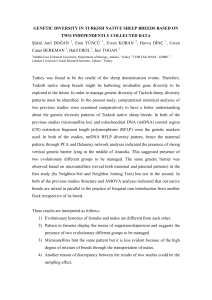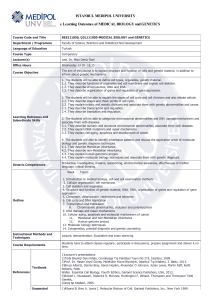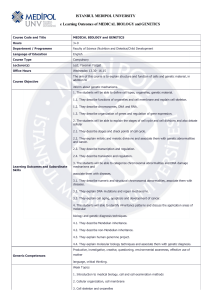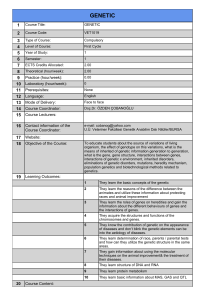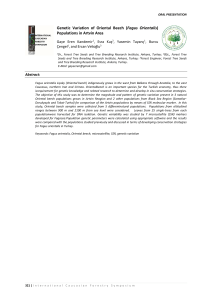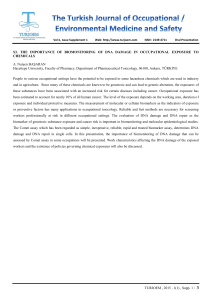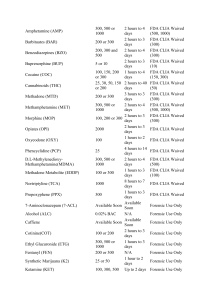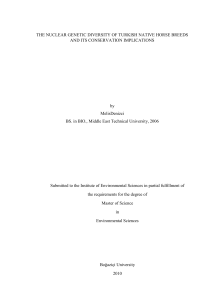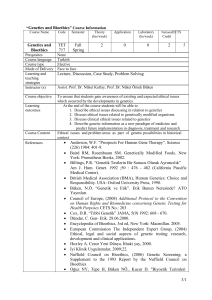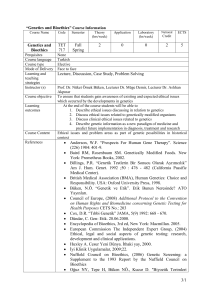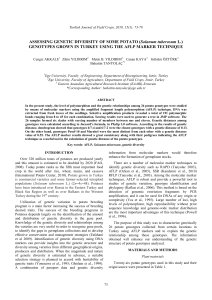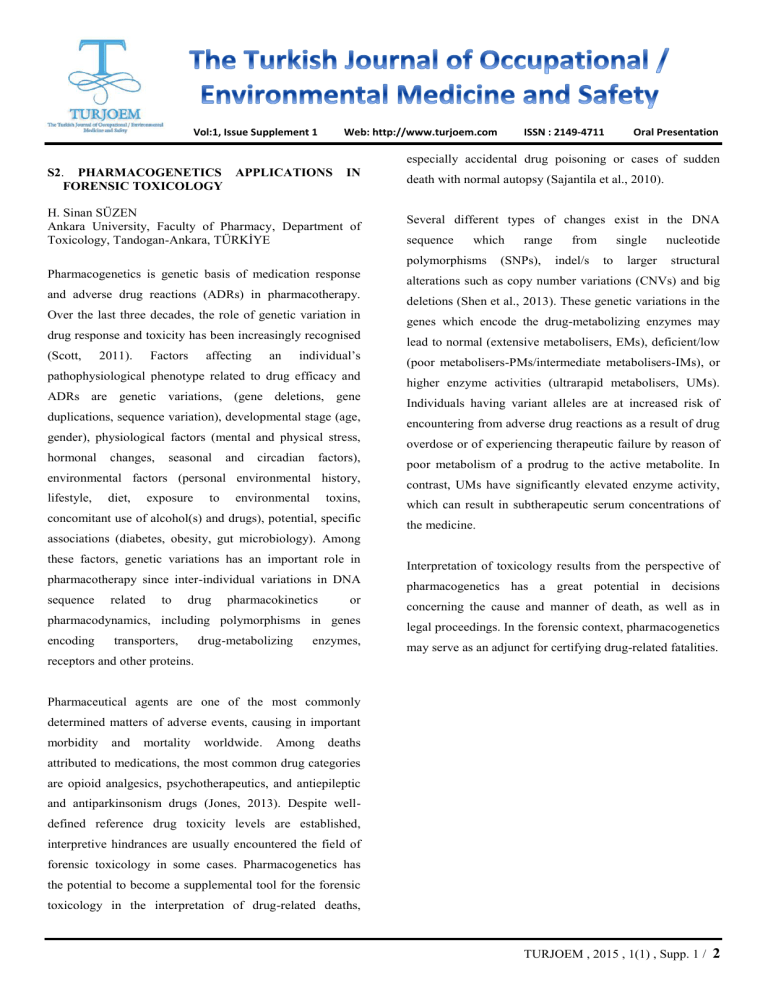
Vol:1, Issue Supplement 1
Web: http://www.turjoem.com
ISSN : 2149-4711
Oral Presentation
especially accidental drug poisoning or cases of sudden
S2. PHARMACOGENETICS APPLICATIONS
FORENSIC TOXICOLOGY
IN
H. Sinan SÜZEN
Ankara University, Faculty of Pharmacy, Department of
Toxicology, Tandogan-Ankara, TÜRKİYE
death with normal autopsy (Sajantila et al., 2010).
Several different types of changes exist in the DNA
sequence
which
polymorphisms
Pharmacogenetics is genetic basis of medication response
and adverse drug reactions (ADRs) in pharmacotherapy.
Over the last three decades, the role of genetic variation in
drug response and toxicity has been increasingly recognised
(Scott,
2011).
Factors
affecting
an
individual’s
pathophysiological phenotype related to drug efficacy and
ADRs are genetic variations, (gene deletions, gene
duplications, sequence variation), developmental stage (age,
gender), physiological factors (mental and physical stress,
hormonal
changes,
seasonal
and
circadian
factors),
environmental factors (personal environmental history,
lifestyle,
diet,
exposure
to
environmental
toxins,
concomitant use of alcohol(s) and drugs), potential, specific
range
(SNPs),
from
indel/s
single
to
larger
nucleotide
structural
alterations such as copy number variations (CNVs) and big
deletions (Shen et al., 2013). These genetic variations in the
genes which encode the drug-metabolizing enzymes may
lead to normal (extensive metabolisers, EMs), deficient/low
(poor metabolisers-PMs/intermediate metabolisers-IMs), or
higher enzyme activities (ultrarapid metabolisers, UMs).
Individuals having variant alleles are at increased risk of
encountering from adverse drug reactions as a result of drug
overdose or of experiencing therapeutic failure by reason of
poor metabolism of a prodrug to the active metabolite. In
contrast, UMs have significantly elevated enzyme activity,
which can result in subtherapeutic serum concentrations of
the medicine.
associations (diabetes, obesity, gut microbiology). Among
these factors, genetic variations has an important role in
pharmacotherapy since inter-individual variations in DNA
sequence
related
to
drug
pharmacokinetics
or
pharmacodynamics, including polymorphisms in genes
encoding
transporters,
drug-metabolizing
enzymes,
Interpretation of toxicology results from the perspective of
pharmacogenetics has a great potential in decisions
concerning the cause and manner of death, as well as in
legal proceedings. In the forensic context, pharmacogenetics
may serve as an adjunct for certifying drug-related fatalities.
receptors and other proteins.
Pharmaceutical agents are one of the most commonly
determined matters of adverse events, causing in important
morbidity
and
mortality
worldwide.
Among
deaths
attributed to medications, the most common drug categories
are opioid analgesics, psychotherapeutics, and antiepileptic
and antiparkinsonism drugs (Jones, 2013). Despite welldefined reference drug toxicity levels are established,
interpretive hindrances are usually encountered the field of
forensic toxicology in some cases. Pharmacogenetics has
the potential to become a supplemental tool for the forensic
toxicology in the interpretation of drug-related deaths,
TURJOEM , 2015 , 1(1) , Supp. 1 /
2

